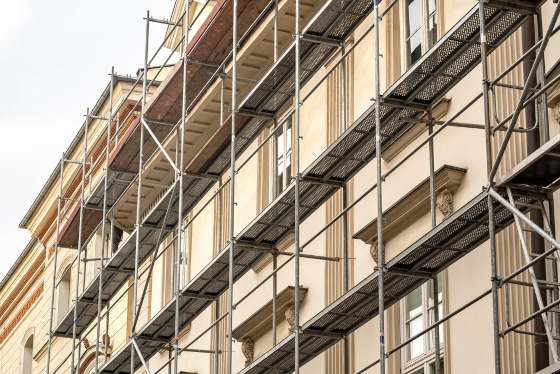Clients often ask us how they can deal with common repairs to their property when one or more of the owners in the building is not prepared to co-operate or contribute. This challenge faces the owner of any house where there is an element of common property.
There are three elements of this challenge. The first element is reaching agreement that work is needed. The second is getting agreement and instructing the work. Finally, the third element is collecting the money to pay for the work.
To address the challenge, our first port of call is the title to your property.
How do we normally deal with common repairs?
The titles to flats in tenement buildings, conversions, cottage flats and four in a block and other types of houses where there is an element of common property should contain provision specifically dealing with common repairs. These provisions should make provision for maintenance of those areas of common property. They should also deal with how maintenance and repairs are managed, carried out and paid for. However, some titles fail to include these types of provisions. On other occasions, the provisions are defective or incomplete in some way.
Where the titles are silent on provisions relating to repair of common property, the owners had to rely on the law of tenement. In very basic terms, that meant the owners of the top floor properties were responsible for repair and maintenance of the roof whilst those who own property on the ground floor were responsible for maintaining the foundations that support the building. Clearly that placed an onerous burden on the owners of the flats on the ground and top floors. This was the position prior to the Tenements (Scotland) Act 2004 which was introduced to resolve issues where the title was either silent in relation to common repairs or where the conditions relating to common repairs were defective in some way.
How does the Tenements (Scotland) Act 2004 work?
Do not be fooled by the reference to “tenements” in the title. This act applies to all types of property where there are elements of common property for which several owners are responsible.
The purpose of the Act is to set up a scheme of maintenance and repair for common areas of buildings.
The Act contains provisions to allow common repairs to be assessed. work instructed to be carried out and paid for. In addition, the Act provides for repairs being carried out when the majority of owners agree that the works be carried out.
What are the practical implications of the Tenements (Scotland) Act?
The Act does not replace the existing title conditions. It is designed to complement them and will come into effect where title conditions are either non-existent or defective. When this is the case, a Tenement Management Scheme can be instigated. This will then deal with some or all the following matters:
- Which items of property are considered to be “scheme property”
- The extent of the owners’ decision making
- How the voting procedure works
- On what basis costs will be apportioned and shared
- How “maintenance” is defined
- The appointment of a manager, where appropriate
- How to deal with emergency repairs
A Tenement Management Scheme operates in conjunction with the title conditions. It will deal with any area where the title provisions are defective or silent.
Frequently, a property factor will be appointed to deal with the proper maintenance and management of the common parts of the property. This tends to smooth the process of tending to common repairs.
What should you do if you run into a problem?
If you do encounter problems relating to common repairs get in touch. We are happy to check the terms of your title and advise you of the title conditions. We will explain what is currently available to help you have common repairs assessed and carried out.
If you would like to discuss any aspects relating to your property, please send us a message on our contact us page or call us on 0141 647 9851 or click here to email us.
You may also be interested in these articles:
New Property Ownership Transparency Register
Can I pull out of buying a house if my offer has been accepted?
Conveyancing Solicitors – what are they and what do they do?


